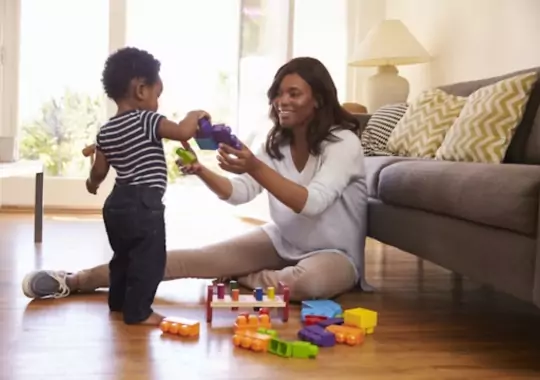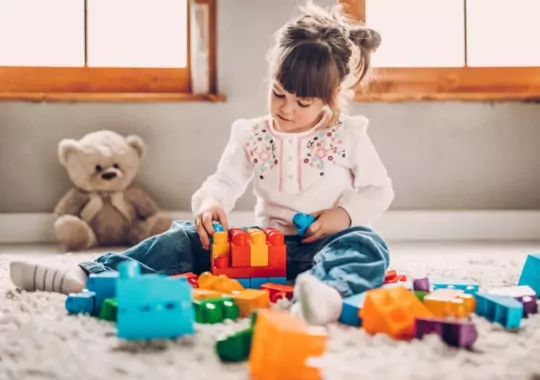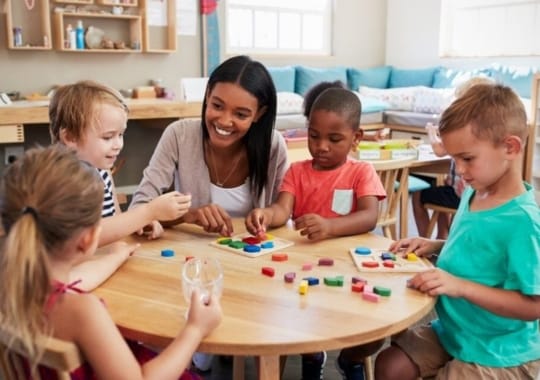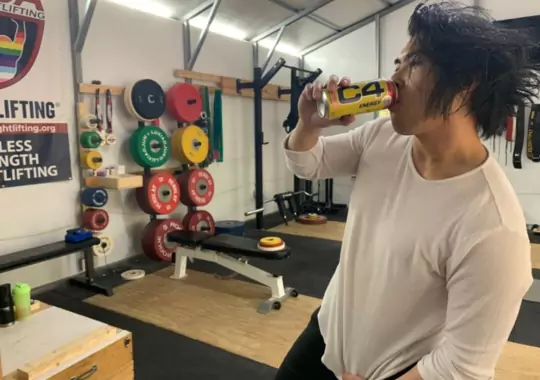As Amazon affiliates we may earn a commission if you purchase a product at no cost to you.
Welcometo an insightful exploration of engaging learning activities tailored specifically for 1-2-year-olds. In this comprehensive guide, we delve into a variety of activities meticulously designed to promote holistic development, including fine motor skills, language acquisition, mathematical understanding, critical thinking, and more.
Object Permanence Box
The Object Permanence Box stands as a cornerstone in early childhood education, particularly for 1-2-year-olds. It serves as a tangible representation of object permanence, a crucial concept in cognitive development. As toddlers engage with this simple yet profound tool, they not only refine their fine motor skills but also deepen their understanding of object permanence.
The act of maneuvering coins through designated slots fosters hand-eye coordination, as toddlers learn to align their movements with visual cues. Moreover, the repeated action of placing and retrieving coins instills a sense of cause and effect, laying the groundwork for logical reasoning.
In Montessori methodology, object permanence is regarded as a fundamental aspect of sensorial education. By grasping the concept that objects continue to exist even when out of sight, toddlers develop a deeper understanding of their environment. This, in turn, enhances their problem-solving abilities and spatial awareness.
Crafting your own Object Permanence Box from recyclable materials not only promotes sustainability but also encourages creativity. Through hands-on involvement in the creation process, caregivers and educators can further reinforce the importance of repurposing materials and minimizing waste.

Pom-Pom Feeding Fun
Building upon our exploration of engaging learning activities for 1-2-year-olds, we delve into the delightful world of Pom-Pom Feeding Fun. Accompanied by the beloved "Brown Bear, Brown Bear" book, this activity offers a unique blend of literacy and hands-on engagement.
As toddlers immerse themselves in the colorful world of the Brown Bear book, they are invited to participate in an interactive feeding experience. Using miniature pom-poms, toddlers hone their pincer grasp as they delicately feed the bear illustration within the book. This action not only strengthens their fine motor skills but also enhances hand-eye coordination and focus.
The use of miniature pom-poms presents a perfect opportunity for toddlers to refine their pincer grasp, a crucial skill necessary for later tasks such as writing and self-care activities. By manipulating these small objects, toddlers develop precision and control in their hand movements, laying a solid foundation for future dexterity.
Accessing a free printable for this engaging activity further enhances its accessibility and convenience for caregivers and educators. Through the provided link, caregivers can easily print out materials and facilitate this enriching activity in various learning environments.
Incorporating literacy elements into hands-on activities like Pom-Pom Feeding Fun not only fosters a love for reading but also reinforces essential developmental skills. As toddlers engage with the storybook and participate in the feeding activity, they are actively expanding their vocabulary, comprehension, and cognitive abilities.
Join us in embracing the joy of Pom-Pom Feeding Fun as we provide 1-2-year-olds with a playful yet purposeful learning experience that nurtures their growth and development.
Drop the Ball
As we delve deeper into the realm of 1-2-year-olds-things-for-learning, the"Drop the Ball" activity emerges as a captivating extension of our exploration of object permanence. This simple yet effective exercise presents toddlers with a delightful opportunity for tactile exploration while fostering crucial developmental skills.
Encouraging toddlers to drop balls through designated slots not only promotes hand-eye coordination but also enhances concentration and focus. As they observe the trajectory of the balls and anticipate their movements, toddlers engage in a playful exploration of cause and effect.
The tactile sensation of handling the balls further enriches the sensory experience, stimulating cognitive development and spatial awareness. By actively participating in this hands-on activity, toddlers refine their motor skills and deepen their understanding of object permanence in a dynamic and engaging manner.
"Drop the Ball" exemplifies the essence of experiential learning, providing 1-2-year-olds with a stimulating and interactive experience that transcends traditional teaching methods. As toddlers delight in the playful exploration of this activity, they are actively laying the groundwork for future learning and cognitive growth.
Join us in embracing the enriching possibilities of the "Drop the Ball" activity as we continue to nurture the development of 1-2-year-olds through purposeful and engaging learning experiences.
Nursery Rhyme Engagement
Transitioning into the realm of 1-2-year-olds-things-for-learning, we invite toddlers to immerse themselves in the enchanting world of nursery rhymes. With our carefully curated selection of the top ten nursery rhymes, caregivers and educators can ignite a passion for rhythmic expression while fostering language development in young learners.
Nursery rhymes have long been celebrated for their ability to captivate young minds and stimulate linguistic growth. Through rhythmic repetition and playful melodies, toddlers are introduced to foundational language concepts such as vocabulary, phonetics, and syntax in a fun and engaging manner.
Exploring nursery rhymes not only cultivates a love for language but also lays a solid foundation for future literacy skills. As toddlers listen, sing, and dance along to timeless classics like "Twinkle, Twinkle, Little Star" and "The Itsy Bitsy Spider," they are actively honing their auditory processing abilities and expanding their vocabulary.
Furthermore, nursery rhymes provide a valuable opportunity for social interaction and bonding between caregivers and toddlers. By engaging in shared recitations and musical activities, caregivers can create meaningful moments of connection while fostering a supportive learning environment.
Incorporating nursery rhymes into daily routines enriches the learning experiences of 1-2-year-olds and promotes holistic development. As toddlers delight in the rhythmic cadence of these timeless verses, they embark on a journey of linguistic discovery and expression that will serve as a cornerstone for future learning endeavors.

Container Challenge
Building upon our exploration of 1-2-year-olds-things-for-learning, we present the Container Challenge—an innovative activity that repurposes everyday items to promote developmental growth in toddlers. By creatively utilizing materials like yogurt containers and popsicle sticks, caregivers and educators can foster hand-eye coordination and fine motor skills in young learners.
The Container Challenge offers toddlers a delightful opportunity to engage in hands-on exploration while enhancing their cognitive and motor skills. As toddlers manipulate objects through openings in the containers, they refine their hand-eye coordination and dexterity, laying a solid foundation for future tasks requiring precision and control.
Moreover, the use of everyday items encourages resourcefulness and creativity, allowing caregivers to adapt the activity to suit individual learning styles and preferences. Whether using straws, clothespins, or other household objects, caregivers can tailor the challenge to provide 1-2-year-olds with a diverse range of sensory experiences and developmental benefits.
Variations of the Container Challenge not only offer endless opportunities for skill development but also promote problem-solving and critical thinking abilities. As toddlers experiment with different objects and navigate various challenges, they engage in meaningful learning experiences that foster resilience and perseverance.
Embracing the Container Challenge as a part of 1-2-year-olds-things-for-learning initiatives encourages caregivers and educators to think creatively about promoting developmental growth in young learners. By repurposing everyday items in engaging activities, caregivers can cultivate a love for learning and exploration while nurturing essential skills in 1-2-year-olds.
Discovery Basket Delight
Expanding on our exploration of 1-2-year-olds-things-for-learning, we invite toddlers to embark on a sensory adventure with the Discovery Basket. Filled with a captivating array of textures, sounds, and objects, this multi-sensory experience stimulates curiosity and cognitive growth in young learners.
Toddlers are encouraged to explore the contents of the Discovery Basket, discovering tinkling bells, hidden treasures tucked within miniature boxes, and an assortment of tactile delights. As they engage their senses, toddlers develop crucial cognitive skills such as sensory processing, object permanence, and spatial awareness.
Tower of Coordination
Introducing toddlers to the vibrant Tower of Coordination activity, caregivers and educators can foster color recognition and hand-eye coordination in an interactive and engaging manner. Toddlers are prompted to identify and hit designated colors, enhancing cognitive development while ensuring endless entertainment.
As toddlers interact with the Tower of Coordination, they refine their motor skills and cognitive abilities while enjoying a fun and colorful activity. By encouraging active participation and exploration, caregivers promote holistic development in 1-2-year-olds and lay the groundwork for future learning endeavors.
Logic and Matching Games
Embarking on a journey of logic and matching, toddlers can engage in stimulating activities like the Matchstick Logic Game and wooden shape sorter. These games not only enhance cognitive skills but also lay the foundation for critical thinking and problem-solving abilities in young learners.
By challenging toddlers to solve puzzles, match shapes, and identify patterns, caregivers foster the development of essential cognitive skills such as logic, reasoning, and spatial awareness. These activities provide 1-2-year-olds with valuable opportunities for intellectual growth and development.
Literary Adventures
Cultivating a love for reading begins with a diverse selection of books tailored to toddlers' interests and developmental stages. From visual discrimination challenges to alphabet exploration, each book offers a unique learning experience designed to instill a lifelong love for literature in 1-2-year-olds.
Through literary adventures, toddlers expand their vocabulary, enhance their comprehension skills, and develop a deeper appreciation for storytelling. Caregivers play a crucial role in nurturing this love for reading by providing access to a variety of age-appropriate books and encouraging regular reading routines.
Incorporating these enriching activities into 1-2-year-olds-things-for-learning initiatives empowers caregivers and educators to create stimulating learning environments that support the holistic development of young learners. By fostering curiosity, cognitive growth, and a love for learning, caregivers lay the foundation for future success and lifelong learning in 1-2-year-olds.
Recommended Article

Frequently Asked Questions FAQs
What are some essential items for learning activities tailored to 1-2-year-olds?
For 1-2-year-olds, it's crucial to incorporate items that stimulate their senses and promote fine motor skills. Some essential items include object permanence boxes, pom-poms for feeding activities, colorful towers for coordination, and discovery baskets filled with various textures and sounds.
How do learning activities benefit the development of 1-2-year-olds?
Learning activities play a vital role in the holistic development of 1-2-year-olds. They help enhance cognitive skills such as hand-eye coordination, problem-solving, and language development. Additionally, these activities foster creativity, curiosity, and a love for learning from a young age.
What are some tips for creating engaging learning activities for 1-2-year-olds?
When creating learning activities for 1-2-year-olds, it's essential to consider their interests, developmental stage, and sensory preferences. Incorporate interactive elements, such as colors, textures, and sounds, to keep them engaged. Additionally, provide opportunities for hands-on exploration and encourage experimentation and discovery.
Conclusion
These meticulously crafted learning activities offer a treasure trove of opportunities for 1-2-year-olds-things-for-learning thrive and grow. Whether exploring sensory delights, mastering fine motor skills, or embarking on literary adventures, each activity is thoughtfully designed to ignite curiosity and foster holistic development. Embrace the journey of early childhood education.










